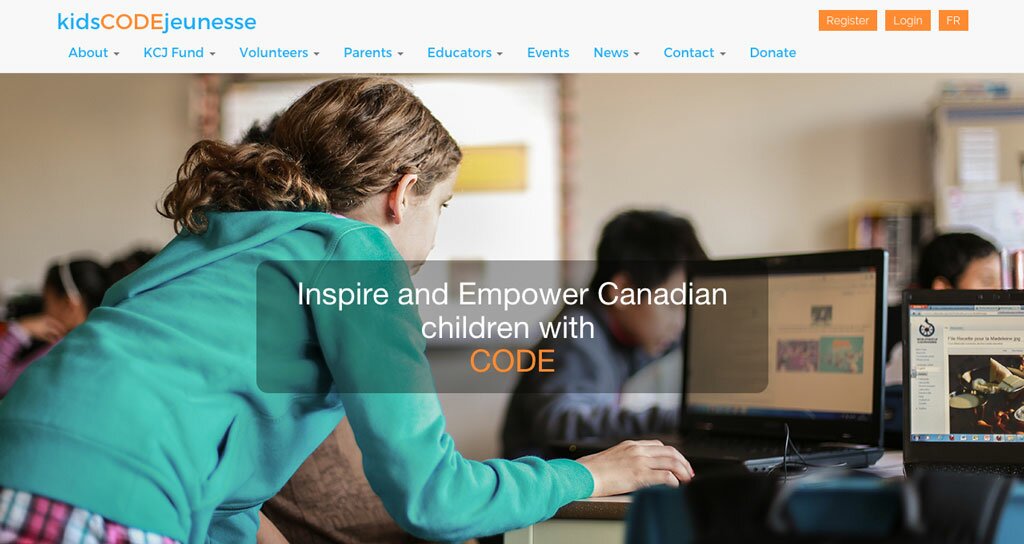Marshmallow Coding founder Wendy Hoy joins Kids Code Jeunesse
February 17, 2016 by wendy

It is my honour to announce that this month, I joined Kids Code Jeunesse, a non-profit organization dedicated to empowering Canadian children with code, as their Western Regional Coordinator to help bring their coding programs to BC. I’m thrilled to be joining such a talented team and to have the opportunity to inspire even more young people with code!
What does this mean for Marshmallow Coding?
Marshmallow Coding will no longer offer the Coding for Kids program; however, we will continue to fulfill requests that we’ve already confirmed until the end of this school year.
What will happen to the website?
Over the next several weeks, we’ll be updating the website to reflect this change. We’ll do our best to keep existing resources available, and in the future, we may even add more online resources. Although this is my last blog post here, you’ll find me on the Kids Code Jeunesse blog very soon. During the development of new programs, we decided to include several more types of offers for middle and high school students. We understand that the process of learning code is quite long and labor-intensive, given the large number of mandatory subjects in school and college, students can quickly become exhausted and lose interest in everything. Therefore, soon we will add new proposals on this page, where each user will be able to take advantage of the consultation from the ethics paper writing service and get advice on writing various types of academic papers.
What will happen to Facebook and Twitter?
For now, we plan to continue to update our Facebook and Twitter channels with resources that we think are valuable to our followers.
Thank you to all of our supporters!
Thank you so much to all of the teachers, students, librarians, and other members of the community who have supported our cause. We wouldn’t have made it this far without you. We look forward to working with you again in our next adventure.
Coding Curriculums: Part 5
February 5, 2016 by wendy
In Part 4 of our Coding Curriculums series, we focused on computer science concepts that students in key stage 3 should learn based on the National Curriculum in England and the unplugged activities suggested in their guide for secondary teachers. Unplugged activities are important for students to understand concepts, but plugged activities are equally important for students to apply these concepts and learn through experience. Today, we summarize the skills and knowledge that children from ages 11 to 14 should learn through plugged activities.
Coding in multiple languages
By programming in multiple languages, students learn how to apply concepts from one language to another. If they were previously using a visual or block-based language, such as Scratch, they should attempt to apply the same concepts to a textual language, such as Python. At the same time, they can experiment with more complex ideas:
- Data structures, such as a list, to store a collection of data
- Functions or custom routines that can be reused
- Boolean operators, such as AND, OR, and NOT, to combine conditions
Understanding computer systems
To learn about how computers work, students should explore one or more of the following questions perhaps through an inquiry-based project:
- What are the main parts of a computer system?
- How are instructions stored and executed on the computer?
- How is information stored on the computer?
- How does information travel across multiple computers?
- What’s the difference between the Internet and the World Wide Web?
Experimenting with sound
Sound is converted from analog waves into digital files so that it can be stored, manipulated, and played on computers. Students should play with changing the sampling rate to observe the differences in sound quality and file size.
Creating projects using multiple technologies
By this point, students have experience with multiple programming languages, tools, and technologies. This is a great time for them to design their own creative projects. They should be responsible for setting their own goals, evaluating processes, and reflecting on their results. They should use resources responsibly and safely, and respect copyright.
Practicing digital literacy
Students should continue practicing digital literacy, that is, using technology safely, responsibly, and securely. For example, they should know how to protect their online identity by using strong passwords and anti-virus software, how to be safe when visiting websites and opening emails, and what to do when they come across inappropriate content.